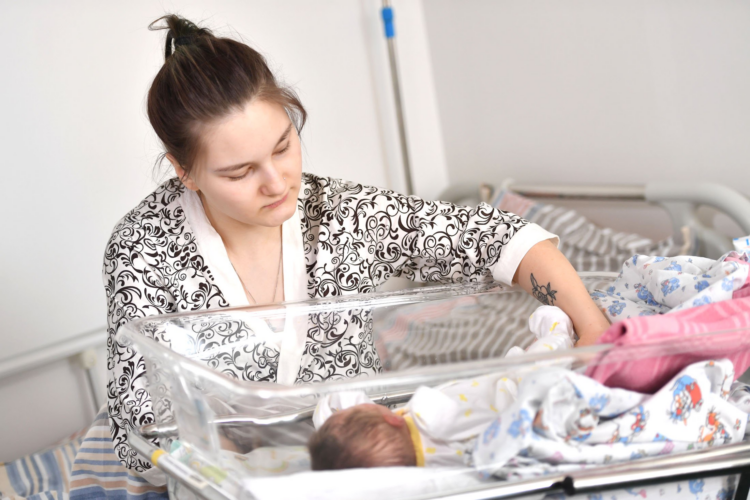The Constitutional Court ordered that pensions be paid to children born after the death of their father using IVF
Published: by .

The children's mother, Maria Shchanikova, asked to check whether parts 1 and 3 of Article 10 of the Federal Law "On Insurance Pensions" comply with the Constitution. And the country's main court said that the woman was right, the current regulations do not comply with the Constitution and the law must be amended.
In November 2016, Maria Shchanikova from St. Petersburg used the reproductive cells of her deceased husband for an in vitro fertilization procedure. The biomaterial was obtained while the man was still alive and was cryopreserved. As a result, more than 300 days after her husband's death, the woman gave birth to twins. The court confirmed the fact of paternity of the deceased husband, and then the woman applied for an insurance pension for her children due to the loss of a breadwinner. She was denied.
The legality of the decision was upheld by the courts, which said that the children were not and could not be dependent on the deceased man, since the fertilization procedure took place after his death. Therefore, his income "could not be taken into account by the plaintiff when deciding on the conception of children and determining the possibility of their maintenance after birth."
The Constitutional Court stated the following. Children are the most important priority of the state policy of Russia. The social protection system provides for a wide range of measures to support children and their parents. In this system, a survivor's pension is one of the main ways of providing material support to a child who has lost one or both parents.
Russia has all the conditions for the use of reproduction, the Constitutional Court emphasized. The death of the father is not an event as a result of which the child loses the opportunity to receive assistance from him
At first glance, such an insurance pension is intended for children born during the life of the parent. But according to the current law, the dependency of the children of a deceased breadwinner is assumed and does not require proof if the child was born within 300 days from the date of the parent's death. This is due to the physiological period of pregnancy.
The use of assisted reproductive technologies is one of the ways to implement the constitutional right to health protection and medical care, promotes childbearing and the development of the family institution. In Russia, there are all the conditions for the use of reproduction. The death of the father is not an event as a result of which the child loses the opportunity to receive assistance from him, since he not only did not receive it, but also could not receive it. But the refusal to assign a survivor's pension would ignore the fact that the death of the father leads to the loss of a potential source of livelihood that the child could count on if the father were alive.
The Constitutional Court said that the contested provisions do not comply with the Constitution of the Russian Federation. The legislator must provide for a survivor's pension for such a child. Until the regulation is introduced, such children are assigned a survivor's pension. The applicant's case is subject to review.
Comments